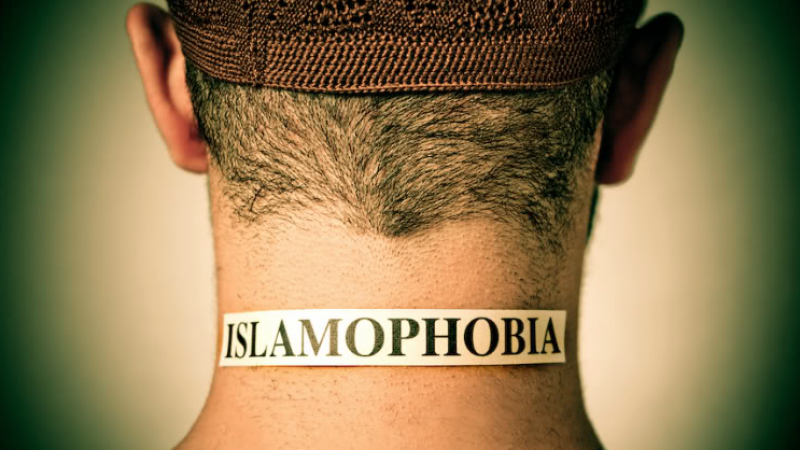A radicalized, right-wing, white Trump supporter walks into a place of worship and terrorizes a room full of innocent Muslim men as they submit in peace and prayer. How depressingly ironic! These men became the victims of the very label that the media and public use to condemn them: terrorist.
The murderous rampage of a 27-year-old Quebecois Canadian, which left six dead, 21 wounded and countless Canadian Muslims now living in fear, has still not been defined as terror. Other than a hopeful moment in which the PM, in reactive passion, called this massacre an act of terrorism, the connection between the radicalized white male and terrorism has been almost forgotten. To add insult to injury on Tuesday, a U.S. congressman said “white terrorism is different…it is isolated”. What does this mean for the over one million Canadian Muslims who stand waiting in vain to be finally vindicated?
For far too long, Muslims in the west have been lumped into a monolithic whole and forced to pay the price for the evils committed by deviant so-called Muslims in far off lands. According to a 2016 poll, 54 per cent of Canadians hold an unfavourable opinion of Muslims. Hate crimes against Muslim-Canadians more than doubled over a three-year span. Muslims have been discriminated against, assaulted both verbally and physically, and many have been violently attacked. Much of the fearmongering rhetoric across the border points to the rise of ISIS and other Jihadi groups to justify the exclusion of Muslims from the U.S. Other than the complete refusal to acknowledge radicalized white political violence as “terrorism,” part of the problem in this narrative is the over-simplistic generalization of Muslims as belonging to one large and threatening community.
The six victims of the Quebec Mosque shooting, who share heritage from Algeria, Guinea, Morocco and Tunisia, are a perfect representation of the cultural diversity of the Muslim community in Canada and around the world. Canada is home to a wide range of Muslim immigrants and their offspring, accounting for 3.2 per cent of the total population. Not only are Canadian Muslims diverse in their reasons for coming to Canada, they also represent a heterogeneous mix of languages and cultures that defies generalization.
However, although some have prospered, many do not fare well compared to other Canadians. The unemployment rate is at a high of 25 per cent (twice the national average) for Canadian Muslims. How much of this has to do with Islamophobia?
It is about time that we start to recognize the nuances of difference and distinction that define Muslims in Canada. Rather than being seen as a homogenous entity, we must realize the complexity of their backgrounds. This is not only essential to the colloquial “myth-busting” of Muslims but it is also essential to the social well-being of all Canadians.
Bisonette could have walked into a banquet hall of Muslim wedding guests or a halal food festival. But he chose to walk into a Muslim place of worship, a place of submission and peace. This should have been the most transparent case of Islamophobic terrorism in Canadian history.
It should have established once and for all for the Canadian Muslim man that the colour of his skin, the accent he bears, the name that he carries, and the faith that he identifies with is not a threat. This should have been the ultimate sacrifice of those six men, the 17 children who lost their fathers, the families and friends who lost their loved ones, and the community that has been living in fear. But, by not naming and prosecuting this terrorism, we have not only evaded responsibility of defining terrorism correctly, we have let down all those people who need to finally be stripped of the label that vilifies them.
The tragic irony in the fate of the Canadian Muslim is that he is forever the villain but never the victim of terrorism. And, the tragedy is twofold for these men. Not only have they likely carried the burden of a label that disparaged them, a label that made it more difficult for them to integrate and make a life in Canada, the true definition of that very damning label is what ended their stories.
What is even more disheartening is that their children will likely continue to carry the burden of the same label that should have been applied to the killer who murdered their fathers. Muslims in Canada, within the unceasing and intensifying climate of Islamophobia, will continue to carry the burden of their collective association to those who disgrace Islam — and as a result, they will continue to live in fear. This cycle of blame, justification, and oppression will continue until we take a stand and call white terrorism out for what it is.
Sabreena Ghaffar-Siddiqui is a PhD candidate and researcher at McMaster University, studying migration, race/ethnicity, identity, social problems, deviance and Islamophobia (to name a few). She is currently conducting research on the experiences and identity-related perceptions of Muslims living in Canada.
Please chip in to keep stories like these coming.



